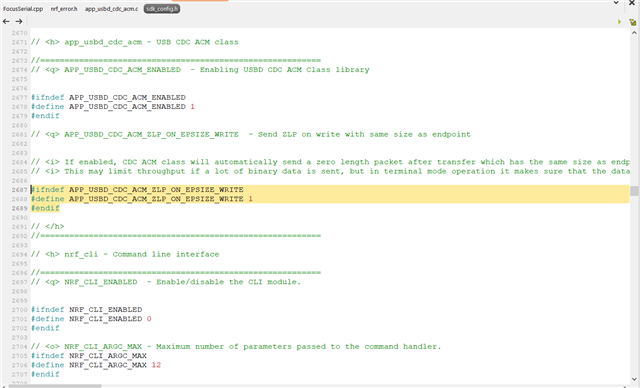I am developing a USB keyboard + mouse using a NRF52833. I have use the USB Device Example from nRF5 SDK v17.1.0. I chose this example because my project is in C++ and had problems compiling the USB HID Composite Example regarding to "designator order for field 'app_usbd_hid_inst_t::p_hid_methods' does not match declaration order in 'app_usbd_hid_inst_t'".
I have implemented the keyboard + mouse HID to my project since the original example only works as a mouse. Now I need to add the CDC class to have a serial com port, any suggestions or examples on how to do it?



